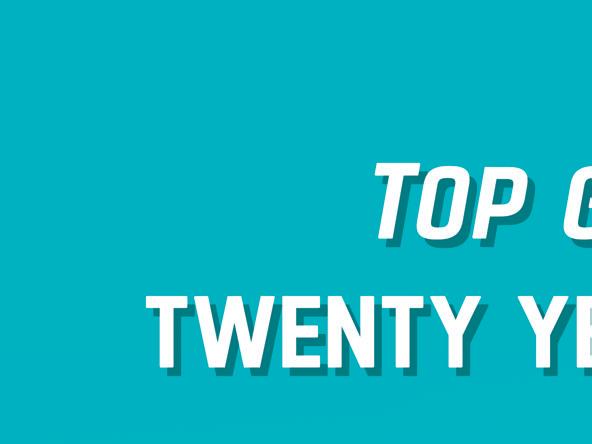
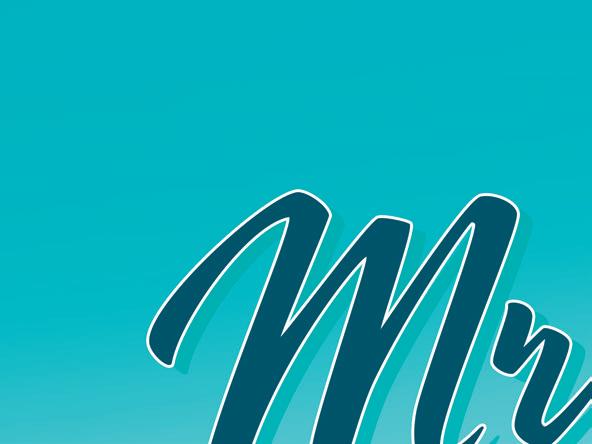
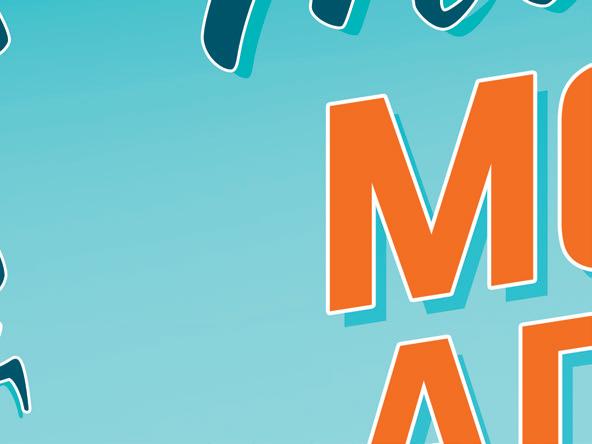
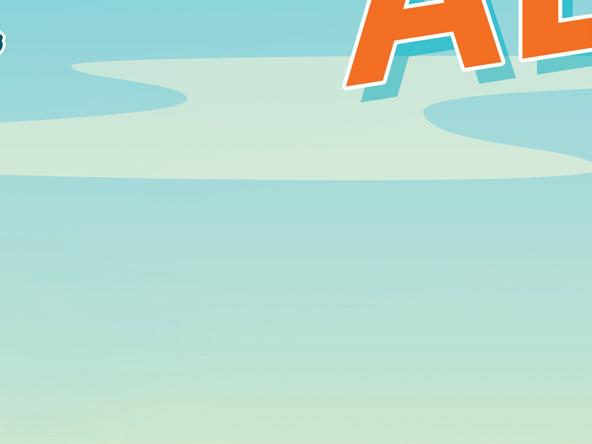
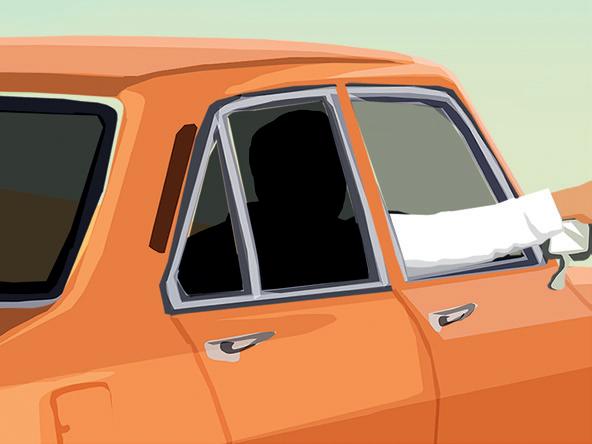
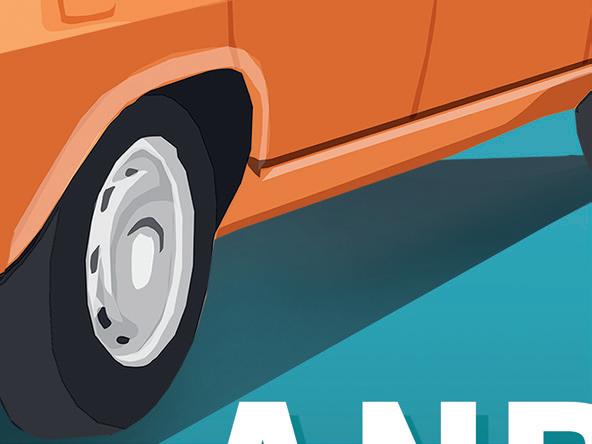
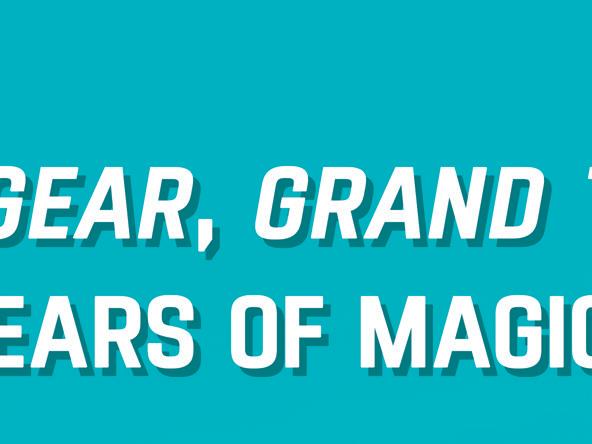

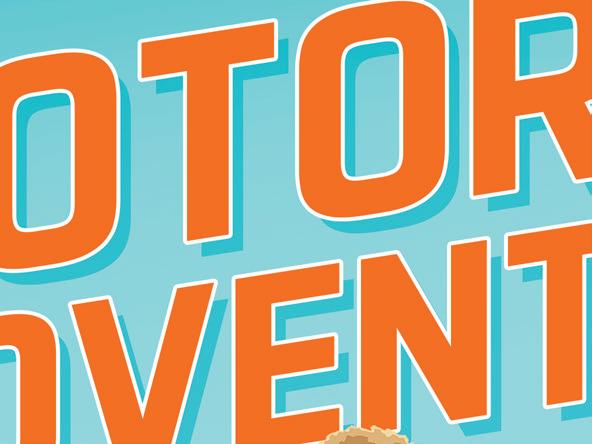
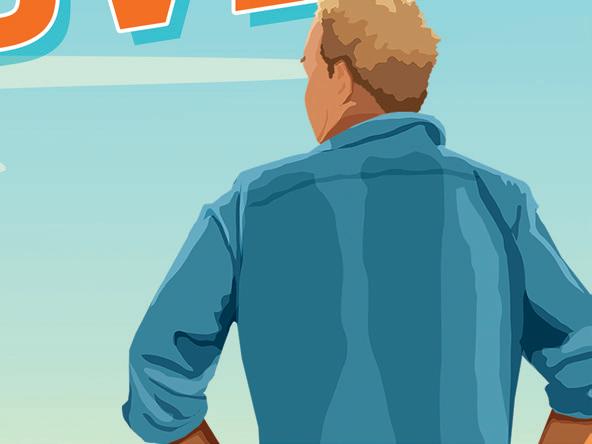

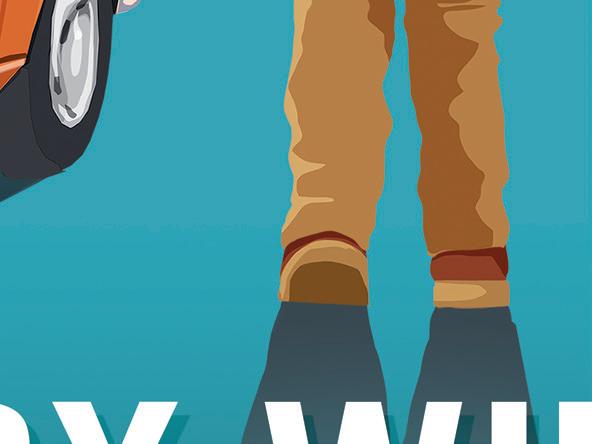

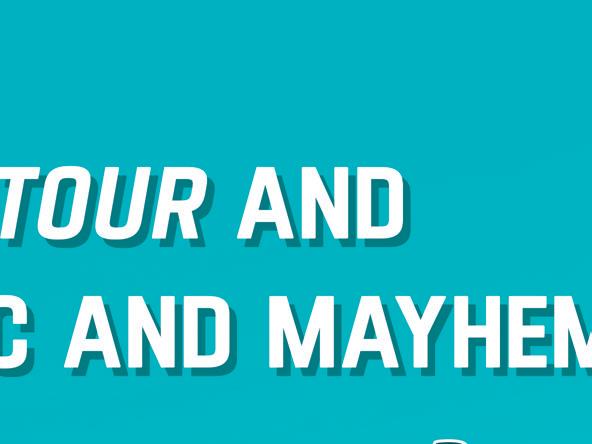
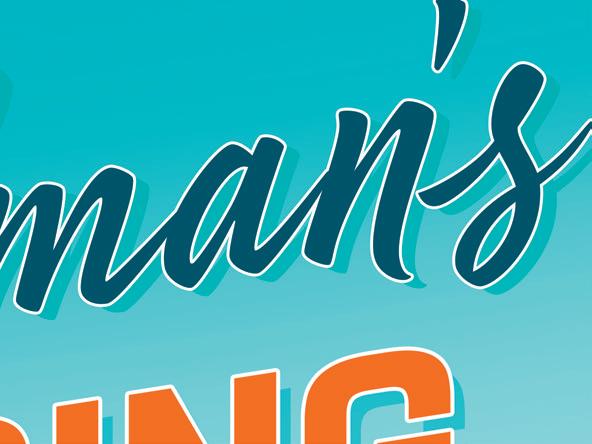
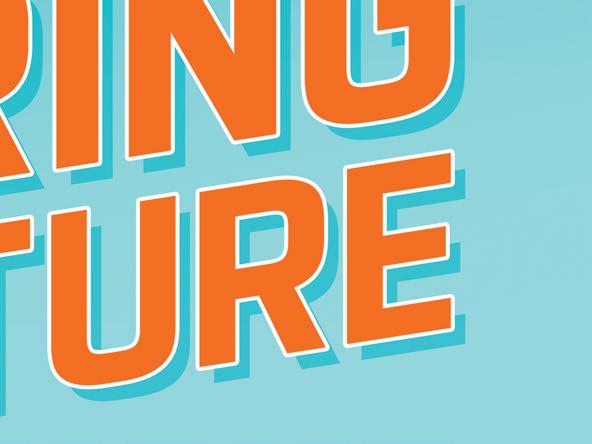
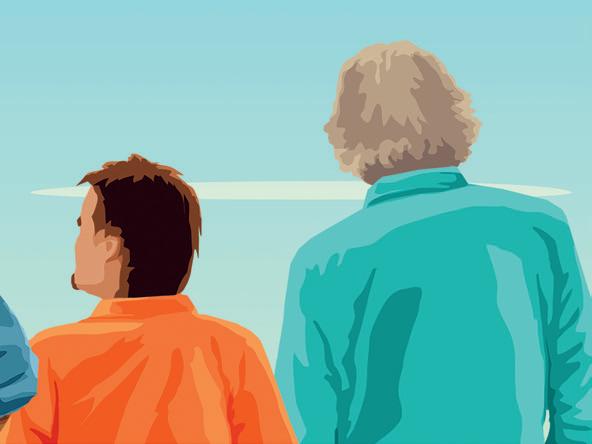

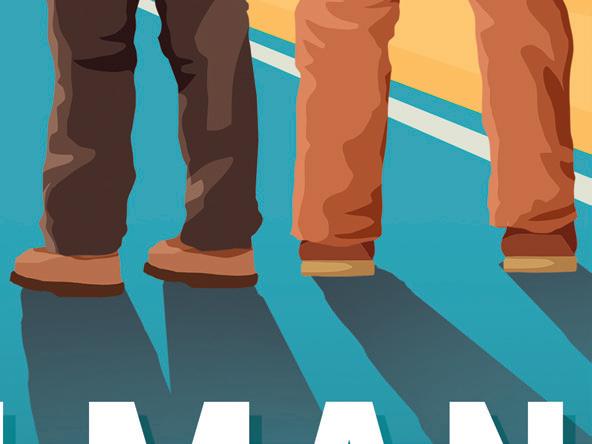





































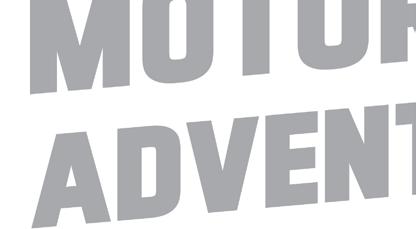
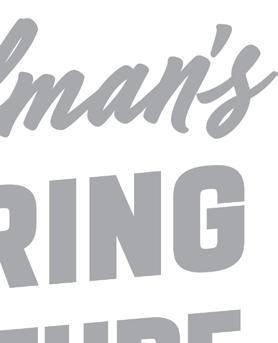

TWENTY

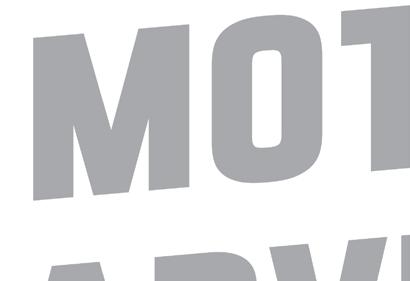

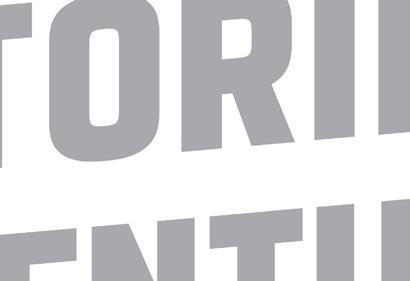

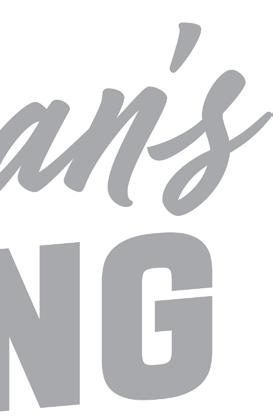

PENGUIN MICHAEL JOSEPH
UK | USA | Canada | Ireland | Australia India | New Zealand | South Africa
Penguin Michael Joseph is part of the Penguin Random House group of companies whose addresses can be found at global.penguinrandomhouse.com
Penguin Random House UK, One Embassy Gardens, 8 Viaduct Gardens, London sw11 7bw penguin.co.uk
First published 2025 001
Copyright © Andy Wilman, 2025
The moral right of the author has been asserted
Penguin Random House values and supports copyright. Copyright fuels creativity, encourages diverse voices, promotes freedom of expression and supports a vibrant culture. Thank you for purchasing an authorised edition of this book and for respecting intellectual property laws by not reproducing, scanning or distributing any part of it by any means without permission. You are supporting authors and enabling Penguin Random House to continue to publish books for everyone. No part of this book may be used or reproduced in any manner for the purpose of training artificial intelligence technologies or systems. In accordance with Article 4(3) of the DSM Directive 2019/790, Penguin Random House expressly reserves this work from the text and data mining exception.
Set in 14/17pt Garamond Premier Pro Typeset by Couper Street Type Co.
Printed and bound in Great Britain by Clays Ltd, Elcograf S.p.A.
The authorised representative in the EEA is Penguin Random House Ireland, Morrison Chambers, 32 Nassau Street, Dublin d02 yh68
A CIP catalogue record for this book is available from the British Library
hardback isbn : 978–0–241–78895–0 trade paperback isbn : 978–1–405–98351–8
Penguin Random House is committed to a sustainable future for our business, our readers and our planet. This book is made from Forest Stewardship Council ® certified paper.
When Jeremy, Richard, James and I set sail on the good ship Top Gear in 2003, it was with a modest ambition: make a decent car show and earn a living. What we finally brought the curtain down on, more than two decades later, was something that we never, ever dreamed of creating. There was, I promise you, no grand battle plan. Some shows have them, but we didn’t.
We weren’t actually skilled enough to consciously create everything we did – indeed some of our most loved elements were happy accidents. And when Fate did give us a nudge in the right direction, we were fortunately smart enough to realise it and run with it.
There were also, as we all know, some unhappy accidents, but let’s not get ahead of ourselves.
The upside of this organic growth was that you saw everything happening in real time as we took our first stumbling Top Gear baby steps, then learned to walk, before finally breaking into a Forrest Gump run that took us all the way to the end of The Grand Tour. Along the way
you experienced all our mistakes and our triumphs at the same time we did. And that is the best kind of relationship a show and its audience can ever have. It’s lightning in a bottle all of its own.
This book then is my recollections and thoughts on how we got to where we did, how we earned our own exhibit in the Television Waxworks Museum.
What I will try and avoid as best I can is to repeat in words what you saw in the films. There’s nothing I can say here that could add to the images of amphibious cars sinking or a homemade car chugging its way across the plains of Mongolia.
Also, you saw everything anyway. To put it another way, occasionally we were asked by TV execs: ‘Why don’t you make a programme showing us all the outtakes – all the bits that really went wrong?’ And we used to reply: ‘That’s the show you’re already watching.’
Instead, I hope you’ll find what you read here as more of a companion piece. If the episodes that you saw were a car in motion, then this book aims to be a cutaway drawing of the engine, showing you all the hidden parts at work as we powered along.
There were, as you can imagine, some amazing components in that engine: directors, producers, editors, researchers, production people and camera crews –because it’s a very skilled and serious job to keep three middle-aged men nine years old for over two decades, so I’ll try and doff my cap to as many as I can.
In truth Jeremy should be the one writing this book. The old ‘History is written by the victors’ moment should be his, because he was the tentpole that held the whole marquee up. For sure we all played our parts and we played them very well, but without his extraordinary brain and his drive, absolutely none of what we did would have happened. This book would merely be a front and a back cover with fresh air in between.
Without him my own career book would be pretty slim too. In my twenties, when I was trying to find a path in life and my glass was constantly half empty because Insecurity kept knocking it over, he, like a true friend, was always there to top it up.
Students of our work may know that he and I met at school, so you’ll find a bit of schooldays stuff in this book too. It’s the place, I firmly believe, where our intertwined TV lives began. I don’t mean we stood there filming each other with a Super 8 camera, but the Top Gear you saw, the spirit of it, definitely germinated there.
I’m sure also that, deep down, Penguin’s accounts department would rather it were Jeremy’s name on the cover. However, they’ve got me, and fortunately I do have one massive advantage over Jeremy in that I can actually remember what we did. He hasn’t got dementia or the like, but his brain is so consumed with the present that what he had for breakfast an hour earlier quickly becomes a mystery to him; so as for what we did in Alabama, forget it. I’m pretty sure that when he reads
this book he’ll be on the phone saying: ‘This Top Gear show, tell me more.’
However, having literally just boasted that I have the memory of a supercomputer, you’ll notice in the book that sometimes when I talk about a person I use the phrase ‘bless him’, or ‘bless her’ after I’ve mentioned their name. This is because whilst I’m utterly, absolutely, unequivocally, almost nearly fairly sure of the facts as I remember them, I’m sometimes not 100 per cent on what was actually said. And I feel that if you say ‘bless him/her’, after someone’s name, they’re much less likely to sue.
One more bit of housekeeping: I sometimes jump around a bit in the timeline to try and make better sense of what we were up to. But don’t worry, you won’t think you’re watching Tenet.
Finally, thank you so, so much for watching and for sticking with us. We never stopped worrying about whether what we were doing was good enough for you, and I hope we managed to enable you to take an hour off from life once a week.
Okay, I think that’s everything. I guess it’s time to wrap this introduction up and – I know I’m mixing my mediums now – dim the lights and let you press Play . . .
I’m driving along at the wheel of Camera Car ‘C’, across the Makgadikgadi salt pans, in Botswana. Camera Car C is my happy place. The car itself changes depending on wherever we’re filming – although it’s almost always a Toyota Land Cruiser – so the important elements of Camera Car C are the crew inside it, and the obligatory letter ‘C’, fashioned from duct tape and stuck on C pillar.
On a Top Gear or a Grand Tour shoot we always have three camera cars in the convoy – A, B and C – each carrying a cameraman, a sound recordist, a camera assistant and a driver, and the 4x4s bearing the first two letters of the alphabet are always ahead of us, doing more filming of Richard, James and Jeremy in their star cars. Consequently, to an outsider, ‘C’ may look like the runt of the pack, but we are in fact the ‘break glass in case of emergency’ camera car, because when one of the presenters’ vehicles inevitably breaks down, we then stay behind with that presenter and shoot his attempts to get going again, whilst the rest of the convoy moves on. Think Hammond and his disobedient
Aston in Mauritania, with its electric windows possessed by the devil. Think Hammond again in Madagascar, with the hopeless, tangled-up wheel tracks on his Ford Focus blocking the road and holding up an entire wedding party, or him pan-frying his testicles when he opened the army rations pack. Or there’s James in Eastern Europe with the unbelievably woeful Crosley that broke down every five miles, having taken five hours to do those five miles. On the plus side, Camera Car C usually gets good telly out of these situations, because comedy breakdowns have long been the main currency of our road trips. The downside, however, is that we almost always get into camp at well past midnight, long after everyone else has eaten and drunk everything within a ten-mile radius.
So that’s our job: rear gunners who can break off as an independent filming unit.
Now let me introduce you to C’s occupants. If we were in one of those action films about an elite Delta Force team, it would go:
Marc Wojtanowski: specialist in sound recording; amateur classic-car racer.
Joey Nutkins: specialist in being a camera assistant; irritating Chelsea fan.
Casper Leaver: specialist in being a cameraman; expert fishing enthusiast. Always photoshops the pics of fish he catches to make them look bigger.
Andy Wilman: specialist in steering-wheel-related operations, emergency director, also specialist in talking
over the radio just as the presenters are finishing a long and complex three-way chat.
Casper has been with us since the Top Gear days but he’s the most recent recruit to ‘C’.
For a while his seat was taken by Steve ‘Aussie’ Lidgerwood, and as much as I like Steve I don’t miss his Australian swearing volcanoes, which erupted whenever my driving inevitably became substandard – I’d say in our convoy of eighty, I’d come about seventy-ninth on the Competent Driver league table, and only seventy-five actually have driving licences. A memorable bad driving moment occurred at about two in the morning, when I lost control going downhill on one of those indescribably bad Madagascan roads and crashed into a tree on the verge. ‘Jesus fucking Christ, mate!’ Steve began. ‘Where are your fucking eyes? When are you taking your fucking test . . .’ etc., etc., continuing on for a good half a minute. Then, when we got out to inspect the damage and saw that the next stop would have been certain death, because the tree had actually stopped us from plunging off a cliff into the sea a hundred feet below, back out came the lexicon of Aussie insults and, understandably, another torrent was unleashed. I tried to take the temperature down by pointing out how beautiful the light from the full moon looked as it shimmered on the water below, but that just made things worse.
Steve actually lives near me in South West London and we sometimes meet up for a dog walk and a pint. On
these occasions he’s really nice, not shouty at all, I guess because I’m simply piloting a Labradoodle, rather than a Land Cruiser.
Anyway, Steve was now happily and safely ensconced in Camera Car B, which had a proper professional driver, and Casper the Friendly Cameraman was much . . . friendlier, whenever there was a driving mishap. In Mauritania, for example, I’d got, I suppose, a bit of rally fever when we were bombing along an empty, deadstraight dirt road, again late at night, and hit a rock which not only eviscerated the tyre but shattered the rim.
As we inspected the damage Casper, in his polite English way, did not detonate, but instead merely made a joke along the lines of ‘Well I guess it’s Hula Hoops for dinner again.’
But yes, back to the point of Camera Car C being my happy place. Firstly, it’s because once I’m in there I can escape my role as ‘The Executive Producer’, the person who has to run the whole shooting match. In ‘C’ I can be free of that title and just do enjoyable coalface work, another cog in the machine.
Indeed, when we’re filming in places where visual signs of hierarchy are important, say Africa, India or Southeast Asia, the local fixers would always try to set me up with my own separate car and driver, as befits an executive producer, because the act of driving is seen as a lowly task. And indeed again, on an occasion when Camera Car C was faced with some official who was angry at us, he
would see me at the wheel and demand I get hold of the person in charge. I could then shrug and say I don’t know where he is.
It’s mainly my happy place though because of its crew. Casper is endlessly funny. Marc is funny too, but also the sweetest person. He makes us all feel guilty by ringing his kids every day at teatime and enthusing about what we’ve been up to. He also loves it when Hammond or May break down because he can help mend their car whilst chuntering on enthusiastically with them about whatever old shit he’s doing up for the race season.
As for Joey, he too makes everyone laugh and has ginger hair, albeit a sort of low-rent ginger, rather than a fiery red like Julianne Moore or Mick Hucknall. As a massive Chelsea fan Joey can talk to Jeremy about their favourite team for hours, even though, at an actual match, Jeremy sits in the Executive section, whereas Joey is proper Shed End.
And, despite his junior years, Joey always provides C with a banging road trip playlist of classic bands from the 60s to the 90s.
Finally – a small but important point – there is always harmony around the snack box, because all of us are partial to different types of nibbles and confectionery.
And so, on that particular morning – 2 October 2023 –we’d left camp after completing the usual pre-drive rituals: load film kit up, check snack box, peel off the U and the N and the T that Camera Car B had taped next to the letter
C on the side of our car, and finally, check we had fresh batteries in the walkie talkies.
We drove out of camp and conversation soon sparked into life. Marc spotted a pile of elephant dung and remarked how surprisingly small elephant craps are in relation to the size of the animal, adding that if he were an elephant, his turd pile would be the size of a Skoda Roomster. This then morphed into a discussion on the theme of: if Marc were to become an elephant, then would an elephant make a good sound recordist? We got on the radio to consult Russell Edwards, the senior sound recordist in A, who thought about it and reckoned that yes, an elephant would be tip-top at the job because it could use its sensitive and dextrous trunk to put the fiddly microphones on the presenters’ shirts.
With that topic exhausted we’d normally have moved straight on to some other avenue of drivel that would never trouble the conversation around the dining table at Melvyn Bragg’s house.
But today, as if our four brains were in some sort of mind meld, we all fell into silence, and stayed silent.
Up ahead we could just see Jeremy’s Montecarlo, James’s Stag and Richard’s Capri, a blue ant, a purple ant and a yellow ant, crawling insignificantly across the vast, ice-white salt pan.
I can’t remember who it was, but after a while one of us finally spoke, with the heaviest of hearts. ‘Fuck me but it’s been fun.’
The sadness swept through the car like one of those black clouds from outer space in a Marvel movie, that covers Manhattan.
And once settled it did not shift for the rest of the drive. Because after today the crew of Camera Car C –and A, and B, and indeed everyone in this convoy, would never be doing any of this, ever again.
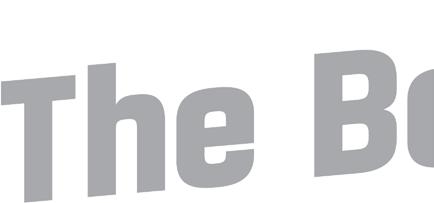


Ihave to start this tale in my infancy, not out of any urge to write an autobiography, but because that’s where our Top Gear story begins. I’ll make sure not to linger.
So there I am aged five, on a hospital ward, and the nurse puts the bowl of porridge on my bed. I manage to take a spoonful before the whole bowl slides off the bed and crashes into pieces on the floor. The nurse is expecting this to happen, so after some clearing up she gives me another bowl and this time I get a couple of spoonfuls in before that one too sails off the bed into pottery and porridge oblivion.
This is day one for me – ground zero – in my latest hospital, Marple Orthopaedic, and I don’t know it yet but I’ll be here for a year. On the plus side, by day two I’ll be able to balance a porridge bowl like a seal with a ball.
The thing is, as a small child I’d been plagued by a medical condition. I didn’t walk until I was three and even then made a pretty crap job of it because everything in my lower limbs was wonky, mishappen and weak, which meant I moved around like an early robot on Tomorrow’s
World. The doctors could not work out what the problem was, but my leg line-up, relative to one another, was getting worse, so aged five I was put in an orthopaedic hospital and strapped to a metal frame on the bed in the hope that it would get my legs to straighten. The whole ward was full of kids with various developmental problems, all of us strapped to these frames. The frame itself was shaped like a drawing of a stick man with two leg bits sticking slightly outwards, then a back-shaped bit going underneath your back. The whole construction was then supported by two wooden blocks so that a bed pan could be slid underneath. Think of it as one of our Top Gear builds but without wheels. The bandages that strapped us down came up to mid chest, so we had full arm freedom but none of us could sit up more than a few inches, which meant we had to keep our food plate somehow balanced on our chests; hence the broken pottery initiation ceremony every time a new inmate arrived.
When I was finally released from the frame a year later, I sat on the side of the bed, stood up, and immediately fell over. All balance had gone, which meant I’d have to learn to walk all over again – not something I’d been that good at to start with. Eventually, in my later childhood years, a couple of muscle biopsies would reveal that there were underdeveloped connections between my nerves and muscles – basically a developmental job that normally gets ticked off when you’re sitting on your arse in the womb, growing fingers and whatnot.
Fast forward to the age of ten, and although the basics of my problem are now known, no adult could ever seem to impart an accurate summary to another adult. Maybe parents back then didn’t think it their place to ask detailed questions because the specialists all looked like James Robertson Justice, but net result, when I ended up being sent to a boarding school aged ten, very little medical information came with me. Out on the playing fields a teacher would literally say, no malice intended, ‘Okay, everyone, get into two groups. Wilman, you’re excused because of . . . whatever, your thing.’
But, because I was basically off games forever, I read a lot, which in turn made me good at English and History, and so aged twelve, I was put down for a scholarship to Repton, a slowly fading public school in Derbyshire.
In order to sit the exams, I had to spend four or five days at Repton itself. This in turn triggered the usual cackhanded transfer of medical information. My prep-school headmaster told my prospective new Housemaster something along the lines of: ‘It’s a very complicated thing; something to do with nerves and muscles; bit of an egghead job to understand it.’
I wasn’t there, bless them both, but I know he must have said something like that because I was later told about the pep talk given by the Housemaster prior to my arrival at the Priory, the House I’d be joining. Mr Bryant – the Housemaster – announced to the assembled boys: ‘So we’ve got this boy coming to take a scholarship. He
has some sort of lifelong illness, apparently very rare, pretty complicated stuff, and I don’t really know what to expect when he gets here. He can walk, but anyway, be nice to him.’
When I went into the House dining room on arrival, the silence was 100 per cent ‘dart misses dartboard and hits pub wall’. However, once they’d seen me help myself to vegetables without my arms falling off, the other kids were pretty sociable. Then, after lunch in the corridor area of the House, where all the Priory boys congregated to talk or pick up their copies of Melody Maker, I stood around awkwardly, reading messages on the noticeboard over and over.
Eventually a youth approached me. He was gangly tall and had a mop of curly hair that looked somewhat out of sorts, like it had been lowered onto his head by helicopter on a windy day. Also, in the same way an Apollo space rocket jettisons its sections, the cuffs of his blazer had parted company with his wrists some time ago, such was his growth rate. The centrepiece of this schoolboy concoction, though, was his tie, which had been done up so many times that the whole tie was basically just a giant knot. I would later discover it was done this way as a particularly advanced form of insubordination, because the boy’s aim was not to make the teachers angry – that was far too blunt an instrument – but instead to cause them maximum frustration. By taking this tie-knotting approach he could claim: ‘Sir, the rule book says we have
to wear a tie. As you can see, I am wearing a tie, but there’s nothing in the rule book about how your tie should be done up.’
The boy who’d never model for Vidal Sassoon was clearly two or three years older than me, but was also clearly curious enough to deign to talk to me anyway. Curiosity of mind was definitely a defining feature, and the Odd Kid standing before him had piqued that. ‘So,’ he finally asked, ‘you’ve got something wrong with you.’ The question wasn’t loaded, just . . . curious.
‘Well yeah,’ I replied. ‘It’s a muscle and nerve thing. Apparently they’re not connected properly. It’s really complicated, and I can walk okay but I’m always off games.’ Life story in a sentence.
‘Oh right,’ replied Tall Boy. ‘The way Bryant was talking about you, I was expecting a man in a white coat to be wheeling in a trolley carrying a fish tank, with just a brain bobbing about, wearing a school cap, with all sorts of wires connected to it. You know, like in Doctor Who.’
Obviously a funny image – he delivered it well – but more than that you could tell he was a bit put out that this wasn’t how I’d actually made my entrance.
Still, this would not be the last time that I would frustrate Jeremy.
With a minor scholarship in the bag I started at Repton in 1975, and as with all public schools back then, there was a fagging system still in operation for the new boys.
However, the word ‘fag ‘was a bit Tom Brown’s Schooldays so instead all new boys were known as Stigs. The Stigs did grunt work such as mopping the dining-room floor, cleaning the changing-room baths, sweeping the yard, etc. but strictly the communal jobs only. Personal fagging had been banned maybe ten years earlier, and if a sixth former asked you to go down to the local high street store to buy cigarettes, he had to give you two out of the packet as payment for taking the risk.
Nobody really minded being called a ‘Stig’. I certainly didn’t. After all, I would only be one for my first year and then the name would be out of my life forever . . .
As for Repton School itself, let me set the scene.
The school was in Repton village, with its various Houses – nine of them, holding fifty boys apiece, scattered throughout the village. On top of that there was the usual assortment of classroom buildings and sports pitches, plus another House where the bachelor teachers lived. The main feature of the village was an ancient stone cross-type affair, at the top of some pretty shonky ancient stone steps surrounding it in a circular fashion. It was called ‘The Cross’ and it was of great importance to historians because it signified that the village of Repton had once been the capital of Mercia, one of the great Anglo-Saxon regions in the country.
Opposite The Cross was a bus stop flanked by two red phone boxes, which was where you went once a week to phone your parents. This in turn put you on the radar of
the local village lads who hung around at the bus stop, and who would sometimes beat you up for being a scholar and a poof. Then, if you managed to snog a local girl, you were beaten up for not being a poof. Diplomatic relations were complex.
In its day Repton had been one of the Great Public Schools. But that day had been a great many days ago, back when cars still had starter handles and women were still called Daphne. The last famous pupil had been Roald Dahl, and he hated the place so much he’d even written a short story to say so.
Actually I’m wrong. The last famous pupil had been the Paul McCartney of Formula 1 car design, Adrian Newey. But he was still technically a schoolboy – about to leave as I arrived, and therefore yet to be famous.
Now, if you think public schools and the people who go to them should be burned alive atop a bonfire of their own entitlement, I’m not here to try and persuade you otherwise. Judge away. All I’m saying is that the school had dropped down the ranks until it was now in the equivalent of the Vauxhall Conference League, and all of us there kind of liked it that way. Over at Eton or Harrow every pupil was expected to become the Prime Minister or solve time travel, but at Repton you could happily mooch about in the Careers Room, looking at the pamphlet on ‘How to be an Estate Agent’, and think: ‘Blimey, tough gig.’
As for the Houses within Repton itself, there was a ranking for those too, with the Priory firmly cemented
to the bottom. Academic achievements and various inter-House competitions for school cups for football or cricket, etc. decided a House’s place in the table, but the Priory’s most consistent achievement – and we were utterly untouchable in this field – was being the House with the biggest annual bill for the most broken windows.
Yet again, this approach to life made for a happy environment. I mean what teenage boy wants to burden his day having to worry about coming second, when you can put your feet up and come eighth? As someone whose biggest physical achievement so far had been to learn to walk – twice – I loved the Priory from the get-go.
When I arrived I was technically two academic years below Jeremy, but because my scholarship classified me as clever I leapfrogged a year, which put me in the Upper Fifth, now just one year behind Jeremy’s Lower Sixth. Think of it as like one of our Car versus Train races, but with schoolboys and Geography books.
The big side benefit of this stratospheric academic rise was enhanced smoking privileges. The Fourth Form and Lower Fifth had to take their chances out in the wilds, nabbing a tab in whatever alleyway they could, at the mercy of marauding, vindictive schoolteachers. But as an Upper Fifth person I could now smoke in the same places as Jeremy’s year. The star location was the outside lavatory block, which in Derbyshire in January, with its broken windows and a smorgasbord of unflushed turds floating in various cubicles, gave off full Gulag chic. To us though, it
was Studio 54. We would congregate in there, spark up a Gold Leaf or a No. 6, and talk about the new Genesis album, safe from any prowling teachers. Then at some point Jeremy would turn up and – I know you’ll probably be amazed by this – immediately start talking in huge, Olympic-gold superlatives. Nothing for him was merely ‘good’ or ‘quite good’. He would walk in brandishing the Stranglers album Rattus Norvegicus and announce it to be ‘literally the single greatest album ever made’. Then, next week, Supertramp, with Even In The Quietest Moments, were now responsible for ‘literally the single greatest album ever made’.
I swear if Jeremy had been presenting Top of the Pops back then, it would have been a six-minute programme. The show would have gone: Top of the Pops theme tune, nur-nur-nur-nurrr-nurr (‘Whole Lotta Love’ riff), camera swoops over applauding audience to Jeremy standing next to Dave Lee Travis, and there’d have been none of that ‘up ten places to number seventeen . . .’ nonsense; he simply wouldn’t have had the attention span to worry about what Brotherhood of Man were doing in the lower regions. Instead it would have been BLAM – straight down to the main order of business –‘This week at Number One, it’s Electric Light Orchestra with ‘Evil Woman’, literally the greatest song . . .’ – cut to ELO playing song, roll credits.
Alongside this distinct lack of grey in his opinions he was also extremely bright, but chose not to waste any of that brightness in places like, say, classrooms, on teachers.
He also did important Community Work. It was he alone, for example, who persuaded the local corner shop, Mace, to stock Marlboro Reds, so that we wouldn’t have to go around smoking No. 6 or Gold Leaf anymore, like shop stewards at a Trade Union meeting.
The pair of us may have been two birthdays apart, which in teenage years is normally a gap the width of the Atlantic, but the gap was bridged a little by the fact that we shared some important traits.
Firstly, there was an inability to play sport. Of any kind. Obviously I had an excuse, what with my Triple A, Platinum Plus off-games chit for life, but Jeremy didn’t have medical privileges so the lack of communication between his limbs was there for all to see. He would gangle around the football pitch like a giraffe connected to a firehose, with everyone else on the pitch just wishing he would go home. If you’d been standing on the touchline and were asked to ‘Point to the schoolboy who, thirtyfive years from now, will be holding a Corvette ZR1 in a graceful powerslide around the Top Gear track’, your finger would not have come to rest on him.
Being shit at sport, though, was an important connector for us, because if you weren’t scoring goals or taking wickets the only way to be admired by your peers – and boy were the pair of us hounds for that – was to get into trouble.
That wasn’t without risk though because the penalties for transgression were not sophisticated: get caught in a
pub or smoking, you get beaten with the cane. Get caught again, you get sent home for two weeks. Third strike, and you go home for good; basically a bit like that film Cool Hand Luke.
I got beaten twice, the second time by the headmaster, and that session was definitely one to remember. Our headmaster was about the same size as Hagrid and he had a wooden leg. Legend has it that in the Second World War a grenade landed near his platoon and he threw his helmet over it and then stood on it in order to absorb the blast. You get the picture: a man of integrity, a man with very little patience for dandruffy oiks slithering into Burtonon-Trent to try and get served in a pub. When his massive arm came down with the cane . . . Jesus, Mother of Mary.
At least he had the decency not to use the line: ‘This will hurt me more than it hurts you’, but when he finished he did fire out the other cliché: ‘I hope that teaches you a lesson.’
It didn’t though, because it just couldn’t. Jeremy and I weren’t getting into trouble as something to pass the time; it wasn’t a hobby. It defined us, it was our currency.
On the plus side for the school, we always tried to transgress with a bit of style, a soupçon of panache. Not for us the braindead activities of breaking windows or spraying graffiti. Instead Jeremy would be involved in, say, manhandling a teacher’s car up the steps and into the assembly hall the night before Parents’ Day. The little extra kicker then was to stand just behind the apoplectic
teachers crowded round the car the following morning, throw in a bit of empathetic tutting, then offer to help them move it back down the steps again.
Or, in the early hours of Sunday morning, we would climb the ancient, revered Viking monument in the middle of the village with a bundle of the Housemaster’s wife’s clothes we’d found in the attic and spruce up the monument with a nice twin set, matching skirt and hat. Five hundred boys would walk past this later that morning on the way to chapel and, mindful that we needed to keep it a secret that we’d been the perpetrators, we would be careful to brag about it to only 490 of them.
Equally important for us, the cut and thrust of avoiding being caught by the teachers was always at its best when it had a bit of a Bond/Blofeld air to it – the way Blofeld gives Bond a tasty candlelit dinner before opening the shark tank. When a teacher said: ‘I know it was you two putting all those women’s clothes on the Cross the other night’ but had no proof so would simply smile, then we’d smile back and all go our separate ways. That moment was as rewarding as the doing of the deed.
Now I’m not saying any of the above qualifies us for the Bad Boys Hall of Fame, Outlaws of the Century. However, it is about context. If you’re an inmate in one of those prisons in Central America that are so scary even the warders dare not enter, then you have to behead every other person on your wing in order to get some Lad Points. Jeremy and I were in a 1970s public school in
Derbyshire where there was chapel every Sunday, a retired Navy sergeant inspected your shoes for shininess and the highlight of the week was being allowed to watch The Professionals. You didn’t have to try that hard.
More importantly, although neither of us were to know it yet, this natural synergy for buzzing like a wasp around authority’s stern head would, I’m utterly convinced, be there to offer a helping hand when we made a car show many years later.
Although these foundations of mischief were being laid, we had absolutely no clue that we would actually end up working together – none of that Bill Gates and his mates in a garage malarkey for us. That’s not to say, though, that we didn’t discuss endlessly and whimsically how we wanted our lives to turn out. The dormitories in the Priory were called Bedders – don’t ask why, I don’t know. None of them would have scored well on Tripadvisor because in winter all of them had ice on the inside of the windows, but one term Jeremy and I found ourselves in Bedder Six, and that was a real win.
Bedder Six’s main attraction was its horsehair mattresses, which were so old that a sort of deep valley had formed in the centre of them, and if you lay down in this pit bit with your blankets over your head, the Housemaster,
when doing his rounds to make sure everyone was going to chapel, wouldn’t notice you were there.
Once he’d gone and the House had fallen silent we’d open the windows, fire up the Marlboro Reds, and then have a bit of a careers meeting about our prospective futures. Jeremy wanted to be either Keith Moon or – I guess because he already had the haircut – Jody Scheckter. I wanted to be Keith Richards. Neither of us were bothered about the fact that the jobs we wanted were already taken by the people actually doing them. What we didn’t realise, though, was that as we lay in our respective beds, pretending to have other people’s jobs, our fate was already in the process of being written. Because at the same time, in a galaxy far far away – 46 miles away in Birmingham, to be precise – at the BBC’s Pebble Mill Studios, a new car show was being launched, called Top Gear.
But for now, all that was Mystic Meg stuff for the future. To us, Bedder Six was, at that moment, the place where we talked shit until we’d literally composted ourselves and where we became friends, with the glue being the fact that we instinctively talked the same shit and liked the same kind of mischief. Many years later, when we formed our first company around Top Gear and were asked to think up a name for said company, we immediately called it Bedder Six. The papers thought it was some crass pun on ‘better sex’. I mean, please. Bedder Six was quite simply us honouring that crappy little dormitory with the hollowed-out mattresses. Likewise in future
years, whenever we both experienced a pinch-yourself moment, such as standing in a Syrian desert at sunset, or finding ourselves talking to both Cameron Diaz and Tom Cruise, one of us would turn to the other and say: ‘Bedder Six’. It was the ground zero where all our unknown dreams had begun. I’d have loved to have called this book Bedder Six, but again, the accounts department at Penguin would take a dim view of that.
I’ll try and canter through these two decades as briskly as possible to get to the Top Gear bit, but I do need to spend a page or two laying the groundwork. Basically it goes like this:
1978. Having racked up one misdemeanour too many, Jeremy is asked to leave the school by a fed-up headmaster and gets a job on the Rotherham Advertiser. His journalistic career is under way. This also marks the point of my first car experience with him, when he comes back to school in his Ford 1600E.
Notable recollection: he’d replaced the Ford badge on the steering wheel with a Debbie Harry badge. I guess subliminally there was already a man in a white coat somewhere in his head, offering him a gold envelope with the challenge: ‘You will now modify your car so that everyone knows it’s owned by a teenage boy who wanks too much.’ We then lose touch for a good couple of years.
As for me: 1979, despite being on my last warning,
I manage to go the distance, finish my A levels and get piss-poor results. But that’s okay because I’m going to London with mates to form a band and be a rock star. The music on offer at that time is absolutely stellar. In the space of about three months I saw a deluge of new bands: The B-52s, Stiff Little Fingers, Joe Jackson, Joy Division, Graham Parker, Elvis Costello, Siouxsie and the Banshees, The Undertones, The Police and the Two Tone tour –Madness, The Specials, The Beat. You literally could not move for musical wonderment and once I got to London me and my mates were going to become part of that Hall of Fame.
Four weeks later our band has broken up and I’m wearing a paper hat, working in McDonald’s as a French Fries Dispersement Executive. But once again: that’s okay, no worries, I’ll go to acting college to be a film star. In between audition rejections and drama school rejections I do the night shift restacking the shelves at the Sainsbury’s in Paddington. They actually did like me there and one evening the night manageress, one of life’s good people, asked me whether I wanted to join the Sainsbury’s trainee management scheme.
‘Thanks but no, you’re alright,’ I replied. ‘Thing is I’m going to be an actor so, you know, eye on the prize and all that.’
‘Right you are,’ she said, trying to hide her disappointment, but persisting anyway: ‘Well look, why don’t you do the entry test that we ask people to do to see if they’re
right for the scheme? Come on, Andy, just do that, then let’s take it from there.’ I couldn’t say no, so I said yes.
With the hook now in my feeble mouth she then outlined how my career path would go – pass entry test, work my way up by running the various areas – fruit and veg, meat section, bakery section and so on, until one day, maybe three centuries down the line, I make store manager. My brain immediately fired off a distress flare: ‘Shit! I’m being sucked into Sainsbury’s World. How the hell am I going to work with Al Pacino if this carries on?’ But there was no way I could hurt the manageress’s feelings, so I decided there was only one option for escaping the gravitational pull of this black hole: fail the entry test.
I’m guessing not many of you have done the 1980s Sainsbury’s Trainee Management entry test but, no disrespect intended, it’s not hard. There were multiplechoice questions such as: ‘You find a tin of salmon on the shelf, it’s punctured and there’s rust around the hole. Do you A) reduce it in price and leave it on sale B) stick it at the back of the shelf behind the other tins or C) remove it from sale?
Obviously the answer was C but I had to sit there, watching the pain on the manageress’s face as I circled B. On to the next question. ‘You are loading your cart to take out onto the shop floor to restack the shelves. What is the correct way to load your cart?’ The options were: A) a picture of a cart with one box on it B) a picture of a cart loaded up like the Leaning Tower of Pisa, with smashed
bottles and fallen boxes all over the floor, or C) a picture of a perfectly stacked cart with just the right amount of neatly arranged boxes.
With a heavy heart I circled B. I could literally hear her wince.
And so it went on. By the time I’d finished, the manageress was clearly wondering how I managed to dress myself without help. She told me I’d failed, I drew on all my De Niro skills to look suitably pained, but at least I was now free to carry on failing to become an actor.
Eventually though, at around the age of twenty-five, I threw in the towel on the thespian dreams, bit the bullet, packed all my stuff into my 1.3 Nissan Sunny (5 speed) and did what I was supposed to do at eighteen, which is to go to university; Keele, in Staffordshire, to be precise, where I read American and Russian Studies.
While I’d been busy getting nowhere, Jeremy meanwhile had moved to London and become a freelance motoring journalist. He soon made a name for himself with his fearless, pithy reviews and his laterally delightful column in Performance Car.
Then one night on a car launch he gets drunk and, emboldened by the free Châteauneuf-du-Pape, goes over to tell the team from Top Gear that their show needs a
kick up the arse. They duly give him an audition, hire him, and he then makes it his mission to try and liven up the content.
Now if you’ve only ever seen our version of Top Gear, with its race track and amphibious cars and space shuttles and tyre smoke, you might be quite surprised at just how much of an uphill struggle that was for him, but yes, it truly was. The BBC’s philosophy for creating content is underpinned by three principles laid down by its first Director-General, Lord John Reith, way back in the 1920s: ‘Inform, Educate and Entertain.’ Early Top Gear only really served up the first two of those three, with endless information about fuel economy, the workings of a diesel engine and boot space.
Jeremy was determined to fight Entertainment’s corner, quite simply because he wanted Britain’s biggest car show to reflect what he himself would like to watch: some gratuitous fantasy in amongst the verdicts on glove boxes.
Consequently he made a film featuring a line-up of Lamborghinis tearing up the tarmac on an airfield. Much smoke, much speed, much power, much excitement. And on seeing this finished cut there was much worry amongst the bosses in the Top Gear office. In fact it caused such a disturbance in the force that it had to be looked over and considered by the big BBC bosses in London. Would such a film incite reckless imitative behaviour? What’s the point of showing cars that only Rod Stewart can buy? And